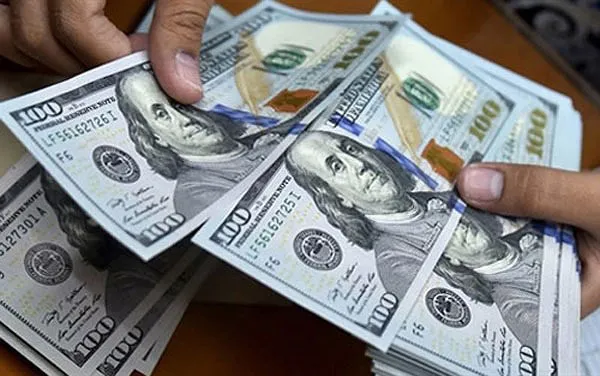Trade deficit poses little impacts on USD/VND exchange rate: Expert
Prospect of possible trade deficit in upcoming months and the impacts from current Covid-19 pandemic in Vietnam would pose pressure on the USD/VND exchange rate.
Vietnam’s high trade deficit of US$2 billion in May poses little impacts on the USD/VND exchange rate, economist Ngo Tri Long told Hanoitimes.
| Vietnam's trade deficit has posed little impact on the USD/VND rate. File photo |
Long referred to the fact that the USD/VND rate quoted by commercial banks was lowered by a marginal of VND10 to VND22,910/23,140 (buying-selling prices) and further declined by VND60 in the free market to VND23,170/23,220.
“This proves the stability of the Vietnamese dong (VND), which has been one of the most stable currencies in Asia in the past months,” Long told Hanoitimes.
Sharing the same view, SSI Securities Corporation (SSI) in a report noted that given the supply-demand balance of foreign currencies at the moment, the USD/VND rate would continue to move sideways in short-term.
SSI, however, pointed out if the trade deficit continues to go up along with the current Covid-19 outbreak in Vietnam, there will be more pressure on the exchange rate in mid- to long-term.
Another factor that could impact the exchange rate was the inter-bank interest rates that have slightly increased by 0.03-0.09 percentage points in the past week, standing at 1.36% per annum for overnight interest rate and 1.44% rate for the one-week loan.
Such rates were higher by 0.35-0.53 percentage points against late April.
“Inter-bank interest rates are dependent on the credit supply-demand balance. Therefore, higher rates reflect the recovery of economic activities as more firms are looking for capital,” Long said.
As the economy continues to stay on the upward trend, there is a possibility that banks would raise capital mobilization rate, he noted.
However, for the immediate future, Long suggested interest rates would stay unchanged as the consumer price index (CPI), a gauge for inflation, rose at a modest rate of 0.16% month-on-month in May and expanded by 1.29% in the five-month period, the lowest in the past five years.
“Vietnam remains on track to keep the inflation below the 4% target for this year,” Long asserted.
HSBC in a recent report predicted Vietnam’s inflation rate in 2021 to average around 3%, saying the impact of moderating food prices would more than offset recovering oil-related prices.
With inflation staying below the 4% inflation ceiling set by the State Bank of Vietnam, this would allow the central bank to maintain its accommodative monetary policy throughout 2021 and keep its refinancing rate unchanged at 4%, it noted.
At present, deposit interest rates average 2.8-4% per annum for one-month to less than six-month deposit; 3.5-5.4% per annum for six- to less than 12-month period; and 4.6-6.5% for 12-13-month period.












